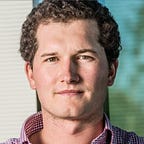How I Found Freedom in Two Weeks of Singapore’s Mandatory Quarantine
Written for all those wanderers (in mind or in body) feeling constrained by global responses to Covid-19 & changing approaches to freedom.
Towards the end of my two week quarantine, but while still locked up; I found myself feeling freer than I have been in a long time. This may sound odd. I had time to think, so I did. Forgive me if my thoughts tumble onto the page in an odd order. I hope to make you think too.
The definition of freedom is “the power or right to act, speak, or think as one wants”. It is also “the state of not being imprisoned or enslaved”. From one perspective I had my freedom stripped from me when I entered Singapore; the yellow sticker I received in immigration meant that I was hustled onto a particular coach as soon as I had picked up my suitcases & taken to an unknown room in an unknown hotel, with no choice in the matter. The key card to the room was programmed to be used once, on entry to the room.
From another perspective, I chose to emigrate despite a global pandemic and while quarantined I have had the opportunity to “think as I want” far more than I would normally. I was imprisoned in room 512, but not enslaved, for 14 nights (or 15 days). My mind, free of the worries of the everyday human in our rapidly changing world, could wander.
According to Maslow, our basic needs are air, water, food, shelter, sleep & clothing. Modern day thinkers would include WiFi! I had all these, as well as the knowledge that I would be allowed out at a particular time on the 15th day, assuming I got a negative on the Covid-Test. Given my basic needs were met, I was more free than a significant portion of the world’s human population who fight each day to meet their basic needs. Billions of people spend their time worrying about their next meal, caring for their family, working to ensure shelter. These thoughts are all-encompassing — taking over all capacity to think of other things. Articles about freedom couldn’t be further from the mind — sometimes all one can do is survive.
We live a life of freedom within constraints. In the truest sense of freedom the only constraints we have are the length of time we live: between being wholly dependent on others (up to the point we are weaned) until the unknown but inevitable eventuality of our death. However, for most people the constraints are far tighter. Societal expectations; those of our families, our communities, our economic systems & even our laws all serve to heap constraints on people. Free will is a much debated concept — most of our decisions are made within an existing paradigm.
When basic needs are met & constraints are clearly laid out, in a constant way, people can act as they like within them. That is why I felt freer than ever despite more constraints than many people have felt in their lives, locked in a room, one or two calls per day from Government compliance teams, as well as the requirement to share a photo & my body temperature three times per day.
It is only when constraints are constantly changing that they no longer provide security, instead causing anxiety — like the UK Governments Coronavirus response. Complicated systems to pick through and navigate, that change frequently, create additional potential constraints: the risk that the rules could change, leaving you on the wrong side of them. Potential constraints are in many ways worse: fear of them means you don’t do things like take your family on a holiday, even though strictly speaking it was permissible. This means that afterwards once the opportunity is gone, you look back with regret.
Freedom without constraint (ignoring human lifespans), would be called “Lost” by many. But as Tolkien said in Lord of the Rings: “not all those who wander are lost”. Wandering may just be taking the road less travelled, avoiding taking the expected path among your peers, family or community. However even among the wanderers, only those who have their basic needs met would be seen to be truly wandering, because until those are satisfied what appears to be “wandering” may just be a search for the next meal or shelter!
This ‘freedom to choose’ is also a difficult concept once you dig into it. The opportunities available to one person may include things that others wouldn’t even conceive of! A lack of power & belief often rules out potential paths because you don’t know they are possible (for people like you). The last year has been a year of ever changing physical constraints, what choices have you made along the way? I found my freedom in quarantine, how do you find yours?
